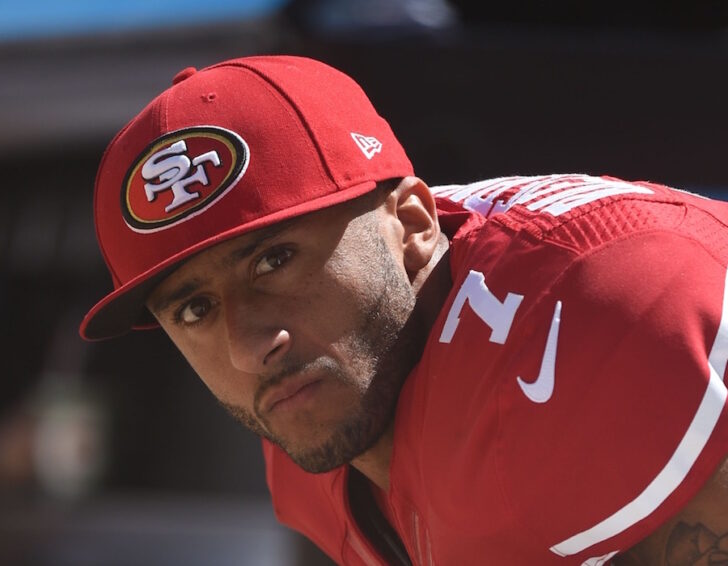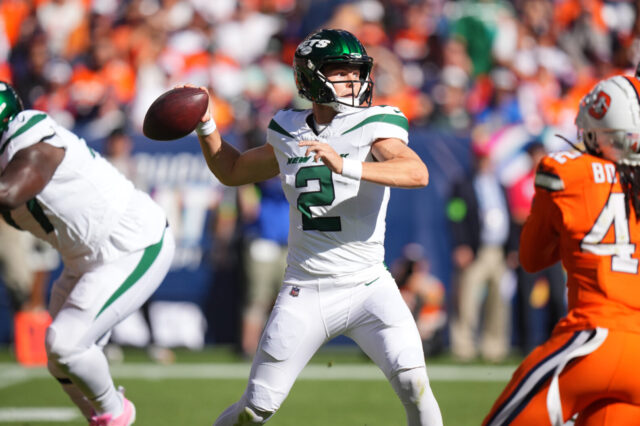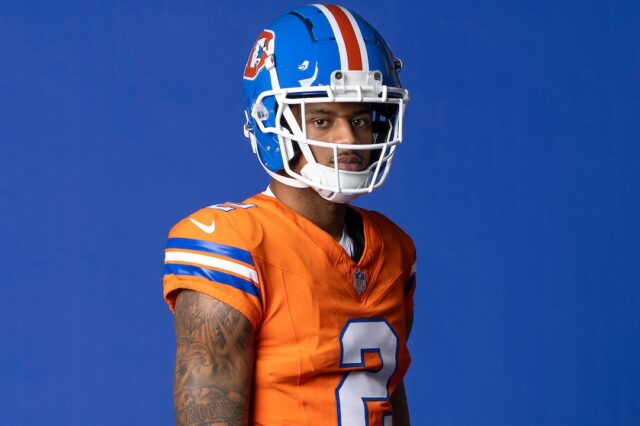For just a moment, forget about the depth chart. Forget about Ronnie Hillman and Kapri Bibbs or the battle for backup tight end. Forget about Paxton Lynch, Trevor Siemian and Mark Sanchez.
Think about Colin Kaepernick.
You know, it could have been us, Denver.
Instead of worrying about Siemian’s completion percentage, Lynch’s safety or Sanchez’s trade value (trivial stuff in the grand scheme of things) we could have been a country – Broncos Country – divided. Your Twitter timeline would not be filled with squabbles over a quarterback’s competence or incompetence, or the hotly debated reasons why John Elway and Gary Kubiak went with this guy over that guy. Instead, it would be filled with whether or not you should root for your very own starting quarterback.
It’s easy to sling arrows at someone else’s quarterback. But what if he were ours? There was a time when that seemed highly likely.
Or think about this: What if you weren’t slinging arrows? What if you supported Kaepernick’s actions, or at least his right to choose them, like the #VeteransForKaepernick movement? The guy in the seat next to you, wearing the same Broncos orange and blue, might not be okay with that, but would you cheer just the same when the Panthers come to town next Thursday?
Forget about the folks in the stands. What about teammates? There was an interesting Twitter exchange between two NFL veterans, both with local ties, essentially weighing in at opposite ends of the spectrum with regard to Kaepernick. It’s not inconceivable that Chad Brown and Joel Dreessen – both former players and both guys I like personally – could have been NFL teammates. Sure, years and teams separated them, but they were both players. They played college ball just miles apart and they both earned a paycheck in The League. Well, they disagreed on this particular topic, and it played out on social media. What if they just so happened to be teammates on the Broncos, both playing with Kaepernick?
America is a place where pride for the flag and the anthem runs thick. America is also a place where we celebrate diversity and the right to think and believe differently. Was either guy right or wrong in his thoughts on Kaepernick?
I liked what Keith Woods wrote in his column. His stance made so much sense to me: “Love of country can’t be accurately measured by whether someone sits or stands or slouches or sings. It’s not that simple.”
The flag and the anthem mean something unique to everyone. I know when it meant the most to me. But as much as it meant to me that day, I’m positive I don’t need or want to tell Kaepernick what it should mean to him.
Sports have a funny way of impacting our country far away from the field of play. They’ve got a way of getting people to talk. Do we need to approve of Kaepernick’s socks, or his decision not to stand for the anthem in order to acknowledge that there might be some issues that need resolved in America? That doesn’t mean we think he’s right – or wrong – but there’s something that requires meaningful discussion.
The actions of athletes like Muhammad Ali and Jim Brown – while controversial at the time – are, in retrospect, viewed as brave and important. Will we think of Kaepernick in the same way some 20, 30, 50 years from now? Will Kaepernick’s actions have more or less impact than those of the NBA players who spoke before the ESPY Awards?
It’s never proper to discuss politics at a dinner party, but when an athlete takes a social or political stand, it suddenly makes headlines. I don’t know why that is, but it’s certainly not a bad thing. It seems that when an athlete, who’s rooted for by people with varying beliefs, takes a stand, both sides can rationally discuss it, unlike the standard “Republican v. Democrat” debate. Take me for example – I hate talking politics – but here I am, writing this column.
If Kaepernick were a Bronco, on the day of the Broncos final preseason game, perhaps we’d be having a different kind of discussion.
Civilly.



